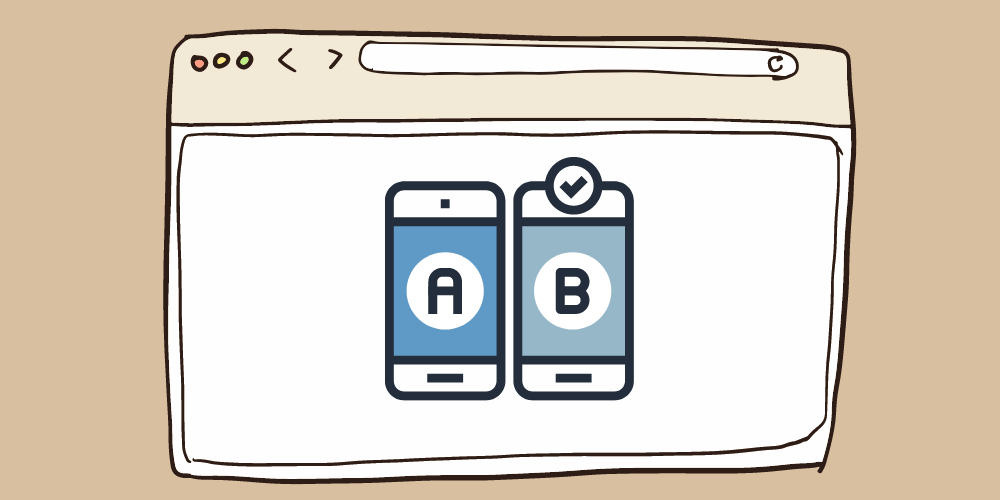A/B testing, also known as split testing, is a method used to compare two versions of a webpage or app against each other to determine which one performs better.
It’s a controlled experiment where variations A and B are shown to similar sets of users, and their responses are compared to see which version is more effective.
A/B testing is commonly used in marketing, user experience design, and product development to optimize conversion rates, click-through rates, and other key performance indicators.
Example of A/B testing:
Imagine you have an e-commerce website, and you want to increase the number of users who sign up for your newsletter after making a purchase. Currently, after a user completes a purchase, they are shown a pop-up asking if they want to subscribe to the newsletter, with a simple “Yes” or “No” button.
You decide to run an A/B test to see if changing the wording of the subscription prompt can increase sign-ups. Here’s how you set it up:
Version A:
- Prompt: “Subscribe to our newsletter for exclusive deals and updates”
- Button: “Yes” and “No”
Version B:
- Prompt: “Get exclusive deals and updates by subscribing to our newsletter!”
- Button: “Sign Up” and “I’ll miss out”
Findings
Both versions are identical except for the wording of the prompt. Half of the users who make a purchase are randomly assigned to see version A, while the other half sees version B.
After running the test for a specified period, you analyze the results:
- Version A: 500 users saw the prompt, and 50 users (10%) subscribed.
- Version B: 500 users saw the prompt, and 70 users (14%) subscribed.
Based on the results, version B had a higher subscription rate. Therefore, you conclude that changing the wording to version B will increase the likelihood of users subscribing to the newsletter.
Key Takeaway
A/B testing allows you to make data-driven decisions by testing variations and identifying what resonates best with your audience.

